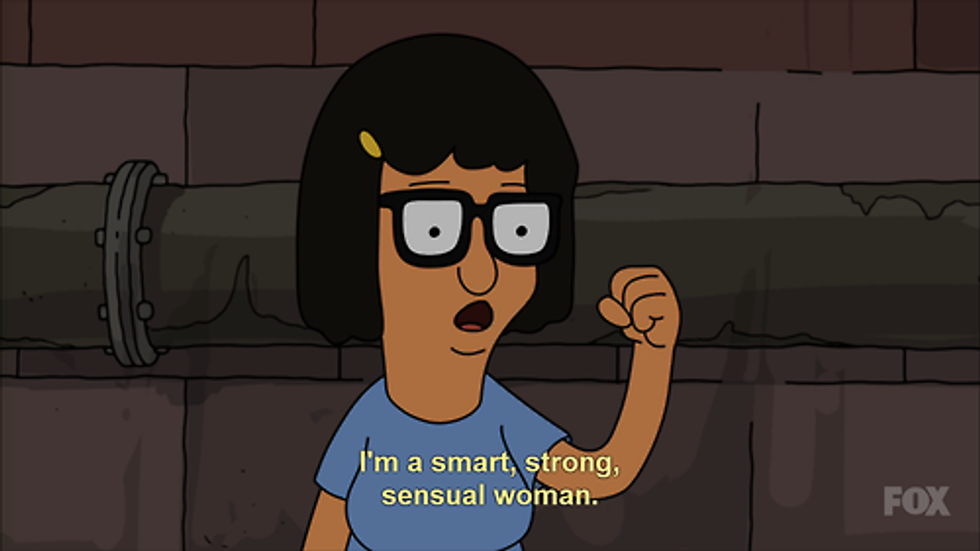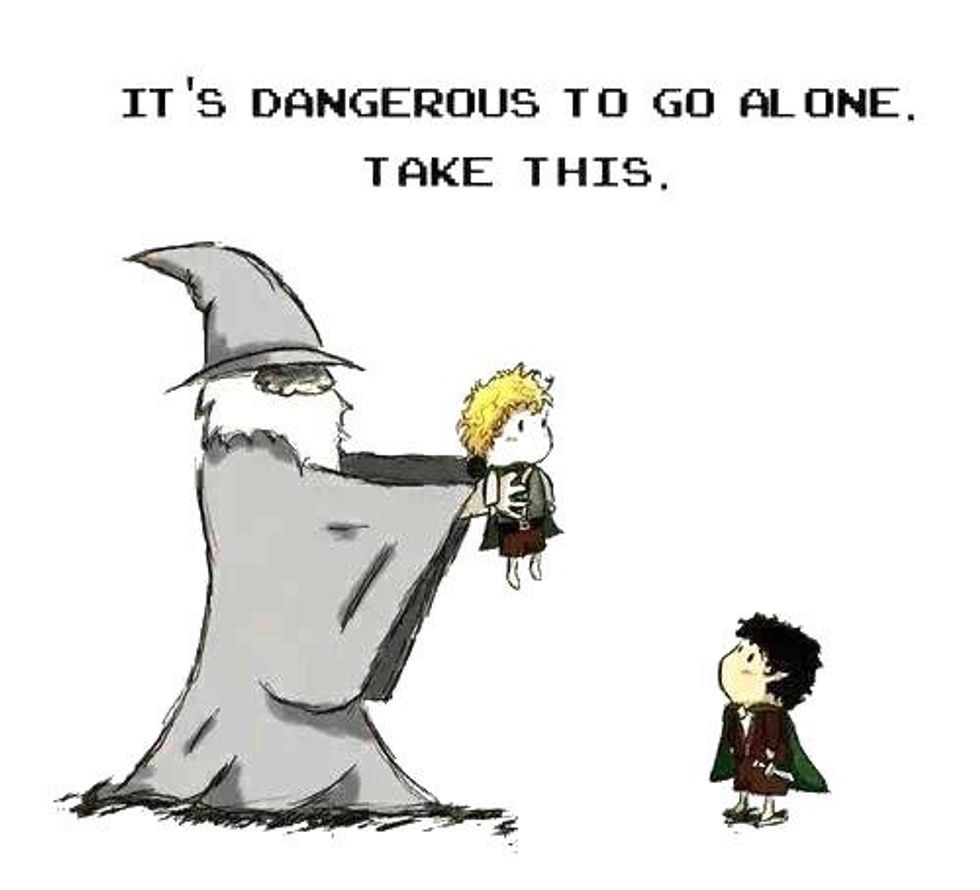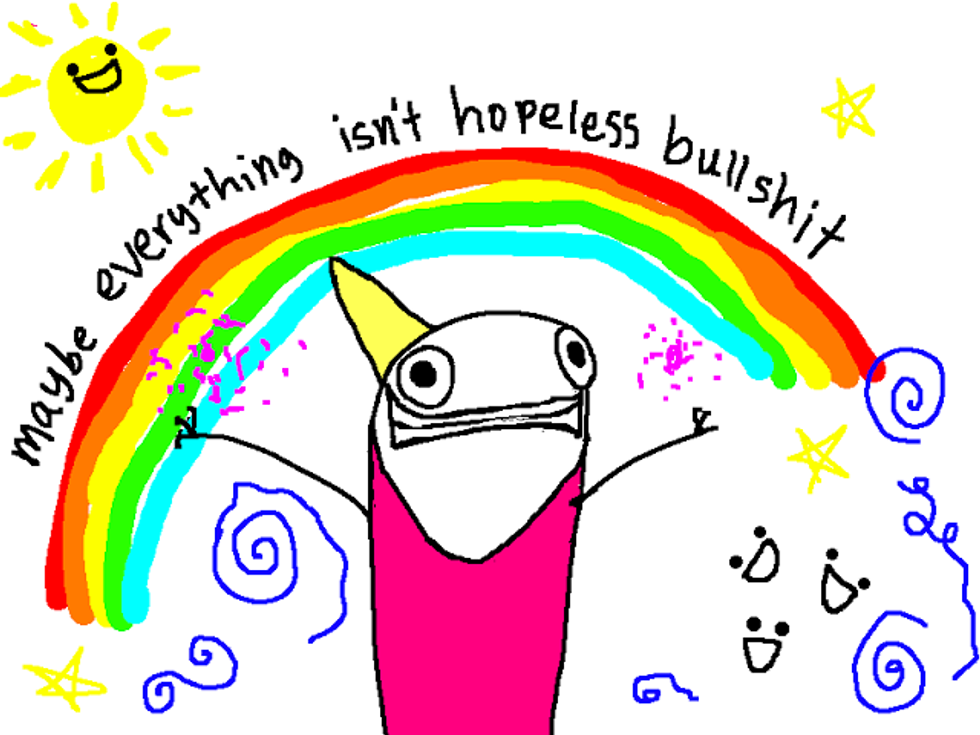Do me a favor really quick. Try to imagine the hardest thing you can talk about. And I'm not talking about steel or diamonds here. I'm talking about topics which, for one reason or another, are the most difficult things you've ever discussed with family, friends or even strangers.
Some people might think race, obviously. Sexism, obviously. Drug abuse and alcoholism. Fatphobia. White privilege. Dementia. Cancer. Rape.
Or this.
There is a plethora of difficult topics to discuss these days. Sometimes someone you care about just doesn't want to hear it. Sometimes someone you thought you agreed with just can't see your point of view. And sometimes something is so shocking, so horrifying and so terrible that no one wants to talk about it.
Without diminishing the importance of these discussions for their ability to address larger social issues and educate the people having them, I would like to say that nothing has ever been more difficult for me to talk about than the sexual abuse I went through as a child. And it isn't all because it sucked and was traumatic and everything--there seems to be some kind of strange resistance to talking about it that I've never experienced with anything else before.
From the time I was 3 or 4 until I was 8 or 9--my memory is hazy in those years--I was regularly raped/molested. For the longest time, I could not remember most of those years. It was like looking at photographs years later of parties I had blacked out at, trying to remember the entire night. I could vaguely recall specific moments, but I could not remember how I felt, what going to school was like, what friends I had or anything except those brief flashes. I thought this was normal for the longest time, to have long stretches of nothingness between distant points of light up through fourth or fifth grade.
I didn't start remembering my abuse until I was 24--this year, in fact. It has put into context a lot of things for me. Still, most of those years are a mystery I have to solve, even though I don't want to. Even though remembering has already helped me take a step or two forward, I still don't want to. It is so, so hard. It is so, so awful. Some days I cannot bear it and I run away and hide, like I always have.
My mantra, often unconsciously, over the past two decades has been survive, survive, survive. I did survive. Barely, at times, but I did. I survived long enough to figure out that survival will eventually be inadequate. At some point we have to learn to thrive. I try to remember this when I run and hide on a bad day. It took me landing in a psych hospital to realize it. I hope for anyone reading this that that is not the case for them.
My mantra these days is courage and I believe in myself because, while survival takes a certain kind of bravery, thriving takes another. Believing in yourself after being torn down again and again, robbed of every chance to take refuge in yourself, made to think you are the basest, dirtiest creature which walks the face of the earth--that takes a courage I have not even wanted for most of my life. But I want it now, because I am no longer satisfied with just survival.
Don't get me wrong, none of this is easy, not even remotely. The past few months since I began to remember have been the most difficult of my difficult life, and the worst, I know, is yet to come.
There are people like me who decide at a young age--many of them much younger than myself--to stand up and fight back against their demons rather than hide or run away. Others take until their 50's or 60's, and that is utterly OK. I cannot emphasize enough how OK this is, because we are not all born with the same capacity to fight such horrors, and oftentimes, circumstances outside of ourselves get in the way of our ability to heal.
One of those circumstances is the silence which surrounds this subject. It strikes me as a little funny that no one really debates which children can be raped (such as with adult men and women). No one ever says it's the child's fault or it's OK for X and Y reasons, and yet it seems to be the most difficult aspect of sexual assault for people to talk about. As soon as I bring it up with most people--if I can even get past my own reasons not to in the first place--it's like I've brought up something dirty best left at home.
Speaking of those reasons not to: they range from blaming myself for what happened and not wanting to burden others, to a fear of an unnameable potential reaction from the person. I don't know what it is that my mind anticipates, but it sets my heart running and I can't make it stop until I decide not to say anything and walk away entirely. As others have simply walked away from me, in the middle of a conversation, after I brought it up.
Incidentally, this is part of the larger problem of silence with mental illness. People who suffer sexual assault when they're young, especially repeated abuse, can develop depression and anxiety disorders, particularly post-traumatic stress disorder (PTSD). I have been diagnosed with major depression, generalized anxiety disorder and PTSD. For myself, I've never really had trouble discussing these things because the silence seems utterly ridiculous to me. I have had a much harder time with discussing my abuse.
There are a lot of reasons for this, but the most important thing I need to say to you is that none of them matter. Step by step with your loved ones, you will figure it out, whether you are the one in pain or they are.
I think that often our first impulse as people outside of the trauma is to feel that by even bringing it up, they want us to fix it and make it better. "What can I say that could possibly make this situation better?" Because we feel we can do nothing, the problem is too heavy, it happened so long ago or we feel we have no experience and therefore, experience a kind of fear of the unknown with it, this question is too much.
It is a selfish thought because we do not need you to magically fix us, and the focus of that thought, "What can I do?" is on you and not the person in pain. It should be, "What do they need or want?" where the focus is on the other person. It does not hurt to ask what someone needs from you. In the end, nothing you can do can pull us from the fire in which we burn in our hearts and minds; we must save ourselves.
Having said that, we do need your support. To believe us, to endure the discomfort with us, to cheer us on from the stands, because your unwavering belief in us helps us believe in ourselves. We need your patience and your compassion, because it can take a very, very long time to get to a better place. And even though we must do the work ourselves, sometimes we need a Sam for our Frodo, when in the deepest despair we can do nothing but continue breathing.
Most of the time, though, I think we just need to know that you are a safe space for us, that we need have no fear of you blaming us or belittling us for our struggles, that we can work out loud on ourselves with someone we love and trust. Part of healing is so often communicating, and we cannot do that under the weight of all of the silence.
I speak now to survivors, too. We cannot move forward if we cannot see past the pain. And in order to do that, we need to surround ourselves with people we can talk to about it, who clearly and in no uncertain terms continue to love and support us despite the discomfort, despite the weight of something so terrible. If we've got the support of even one person with whom we can talk about it, who can help us through the worst times, then eventually we can begin to thrive.
And if we can continue to talk about this difficult, delicate issue, maybe we'll even get to a point where we can prevent it from happening at all.

























